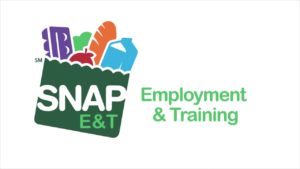Oklahoman Bryan Parker is one of the 42 million Americans served by the Supplemental Nutrition Assistance Program, or “SNAP.” He is also a perfect example of why Congress should renew and expand their investment in Employment and Training (“E&T”) programs as part of the coming farm bill reauthorization.
Parker is a 51-year-old veteran and has always been a hard worker. In his testimony before the Senate Agriculture, Nutrition and Forestry Committee, Parker explained that there was a time in his life when he did not worry at all about paying bills or when he would have his next meal. After his time in the military, he ran a small business in Japan for more than 20 years and then returned to his hometown of Tulsa, Oklahoma, where he lived a stable life.

Like millions of SNAP recipients, that stability ended abruptly when Parker lost his job. Even though he continued applying to new positions, the loss of his job and inability to get a new one led Parker to develop anxiety and depression. Still trying to maintain his life without the aid of others, he sold his car and eventually his house. After moving into a cheap motel, he faced daily struggles from the realities of unemployment. As Parker told the Committee, “A man can endure a lot of pain and suffering, but the one thing that is impossible to ignore is hunger.”
Parker has become an ABAWD, or “able-bodied adult without dependents,” who needs SNAP assistance. This category of SNAP participants has been the target of many attacks on SNAP, the most popular argument being that these recipients are “lazy” and “freeloaders.” However, Parker’s story is just one of many that prove how wrong these misconceptions are. Parker was completely self sufficient until he fell down on his luck. In order to change the circumstances of SNAP participants like Parker the federal government has created, and should continue to invest in, employment and training programs.
The Supplemental Nutrition Assistance Program Employment and Training Program (SNAP E&T), was created to help SNAP participants enter the work force or achieve higher paying jobs within it. Studies have found that without outside intervention, many working poor will remain in jobs that pay below the poverty level. SNAP E&T seeks to intervene. Amongst other things, SNAP E&T programs provide vocational skills training and certifications, work readiness training and post-employment services.
Bryan Parker is presently enrolled in a job training program similar to those provided by SNAP E&T. The 16-week culinary trade program teaches students advanced culinary techniques, nutrition, and professionalism in the workplace. The program also provides graduates with a Food Safety Manager Certificate and assistance with finding full-time employment. While Parker’s job training is not a SNAP E&T program, it demonstrates the effectiveness of employment programs. The job training program provided to Parker will equip him with the skills necessary to build a lasting career and that will make it possible for Parker to one day no longer need SNAP benefits.
Additionally, as he explained to the Committee, thanks to SNAP and the job training program Parker is now optimistic about the future. He dreams of one day opening a food truck that will become popular enough to grow into a brick and mortar restaurant. As Parker’s story shows, job training programs do not simply provide someone with the skills necessary to find a job, but can change his or her outlook on life. In this way, his story serves as a reminder of why employment and training programs should be supported and further developed.
